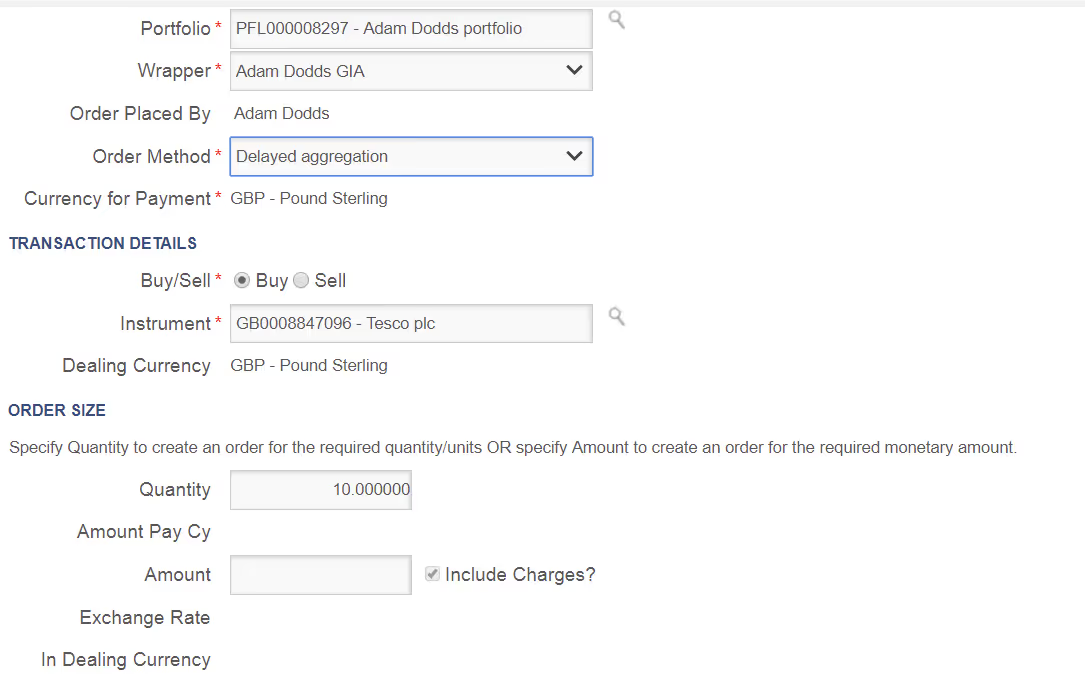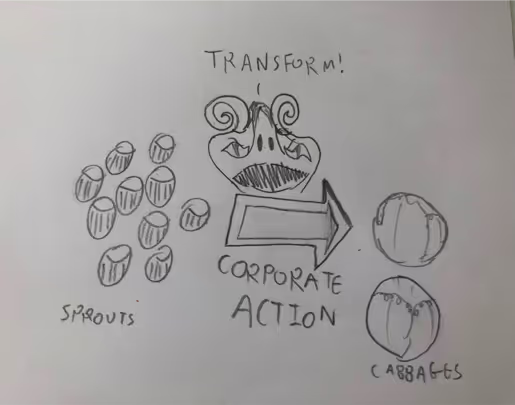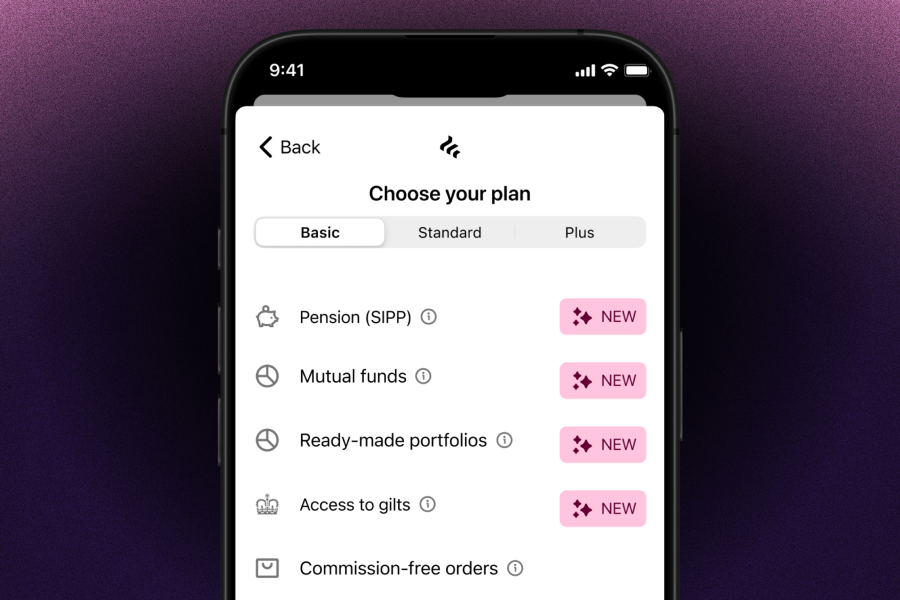
Our stockbroking ops manager Rob is back with an advanced level post on the mechanics of the Freetrade operational backend. Expect complexity, high level jargon and elves??? Note that our Head of Design James is away on honeymoon right now, so we’ve stepped into his shoes with some neat hand-drawn cartoons — we hope he doesn’t mind.
The last couple of weeks have seen quite a few questions from our community on the inner workings of Freetrade.
And now that our trade testing has progressed to more complex scenarios like batch orders and corporate actions, we thought we’d preview everyone on the glamorous nuts and bolts of the stockbroking operation.
Basically, what will actually happen when you tap buy or sell on the Freetrade app?
From your perspective you tap ‘buy’, the trade takes place and your portfolio updates. But have you ever wondered what happens behind the scenes? No? Surely you’re interested? I’m going to tell you anyway.
Setting up the trade
Let’s assume that the assets you chose to trade were LSE listed and CREST settleable and you selected the ‘Instant’ service. Everything in Freetrade’s Beta version will match this description so this isn’t a wildly unlikely scenario for now.
OK, so milliseconds before you tap ‘buy’ a series of helper elves (just to be clear, a whimsical metaphor) sprung to life and started to manually turn some cogs.
They verified that you have enough cash to fulfil the purchase you’ve instructed. Of course they know how much money you have — because they’re very clever! But what about the price of what you want to buy?
Well because they are very clever, one of their group had already headed off down the street and questioned a series of folk she knows that sell such assets.
It’s like popping to your local veg market, haggling for a kilogram of sprouts with several stall owners and choosing the one who gave you the best price. But very fast. Like, supersonic.

These elves (metaphor) don’t mess around. All that work and all it achieved was to put a price for the asset on your phone for you. You decide you’re happy to accept the price displayed and press ‘trade’.
Am I overly simplifying? Yes. For once I’m going to try not to bombard you with too much detail. I’ll still fail but I’ll try.
Those of you working in the financial services industry might already be familiar with the mechanics of trade and settlement. Some of you might not. Will I drop the magic elves metaphor? Let’s see.
Delivery and settlement
Now your magic elves (nope) have sourced you a price and you’ve accepted they need to carry the sprouts from their current location to where you want them. In the real world that means moving the stock from a counterparty and paying them what you agreed.
To make sure everyone is legally bound to this agreement an instruction is input by both parties into a magic electronic settlement system — in the UK we call it CREST. It’s a system that guarantees delivery versus payment.
In simple terms, it’s the physical exchange where the helper elf holds out cash and the sprout vendor holds out, er, sprouts and simultaneously they exchange — making sure one party doesn’t scarper without fulfilling their obligation.
In the UK this exchange usually takes place 2 days after the contract was agreed. This allows everyone to get their house in order and make sure everything is good to go behind the scenes.
Fairly recently standard practise was to settle 3 days after trade. Who says there’s no innovation in financial services? 😂
From a front end user perspective this makes absolutely no difference though.
Anyway, two days post trade, our helper elf and the sprout vendor meet to exchange sprouts for cash.
But what if the sprout vendor doesn’t have enough sprouts to fulfil the original order?

Fear not, both have access to the magical electronic contract generating machine and have converted the original order into two parts — the one now fulfilled (let’s say 50% cash in exchange for 50% stock) and a new legally binding agreement to deliver the remainder at some future date.
As a Freetrade app user you know none of this as your portfolio already reflects everything you purchased and your cash has been debited.
This is purely an operational issue that the helper elves will manage on a daily basis behind the scenes until the sprout vendor has enough stock to deliver.
They also manage all the regulatory requirements behind the scenes to make sure their overlords at the Vegetable Conduct Authority (OK, the FCA) are satisfied each party is playing by the rules.
In the meantime, one helper elf makes a run to the Freetrade vegetable depot (a Freetrade account) and neatly parks the recent, partial delivery of sprouts (shares).
Oh no, a corporate action!
Adverse weather and chemical usage in the central sprout region of the world causes problems with this year’s crop and the sprout vendors governing body decides that all current holders of sprouts need to swap their sprouts for cabbages. Since cabbages are considerably bigger than sprouts this will not be a 1:1 exchange.
Helper elf and sprout vendor both rush back to their magic electronic legal contract generating machine (that’s CREST, BTW) where they agree to transform the legally binding contract for 500 sprouts into 50 cabbages for the same cash consideration.
The 500 sprouts purchased last week are also going to need to be exchanged and the elves make arrangements to remove them from the Freetrade storage depot.
So now our helper elf and sprout-cum-cabbage vendor meet and exchange 50 fresh cabbages for the price originally agreed for the unfulfilled contract on the 500 sprouts.
Then the elf jumps in the elf mobile and rushes to the Freetrade depot, loads 500 sprouts into the vehicle and speeds off to meet a man blessed with magic powers. 🌩
Upon arrival, the helper elf hands 500 sprouts to a strange beast who has the power of alchemy. One touch and 500 sprouts turn into 50 fresh cabbages. After a brief moment of wonder, the elf is off to deliver the cabbages back to Freetrade.

So it’s been problematic, but we’ve got there. The elf quickly updates your portfolio to reflect your new ownership of 100 cabbages and heads home for the evening.
Tomorrow morning, bright and early, the process starts again to monitor outstanding deliveries, reconcile cash and stock, deal with counterparties, manage changes and adhere to regulations.
And that’s it. Glad you stopped by.
What? You thought you were going to get over-the-top technical details about the mechanics of trade and settlement? You have. Just based in another world.
For anyone that’s confused the sprout vendors were the market makers. The elf was the Freetrade app and staff. Sprouts are shares. The magic electronic legally binding contract machine was CREST.
The part delivery storyline was a CREST message (DEL, ADVN or MT5xx — take your pick depending on your message type preference) split and adjusted to facilitate part exchange. The cabbage-for-sprout exchange was a corporate action — like a merger, a takeover, a consolidation or a stock split.
Clear? Good. Thanks for listening.
On a more serious note, if anyone is genuinely interested in the mechanics of trade and settlement then drop me a line with your question.
If you do, expect a blog post full of acronyms like DEL, ADJ, TTE and ACON as I ramble on about CREST message statuses.
If you have any questions about corporate actions then hold fire for now. I can see a day in the not too distant future where some basic post regarding these events will be necessary.
It will be difficult to succinctly run through all the mechanics without the blog becoming as long as War and Peace.
So if I use some hideous otherworldly fantasy land simplification to explain then I apologise in advance. I’m thinking goblins. 👺
~Rob, Stockbroker Operations Manager
We’re on a mission to bring fee-free investing to Europe and beyond. 🔥
This should not be read as personal investment advice and individual investors should make their own decisions or seek independent advice. This article has not been prepared in accordance with legal requirements designed to promote the independence of investment research and is considered a marketing communication.When you invest, your capital is at risk. The value of your portfolio can go down as well as up and you may get back less than you invest. Past performance is not a reliable indicator of future results.Freetrade is a trading name of Freetrade Limited, which is a member firm of the London Stock Exchange and is authorised and regulated by the Financial Conduct Authority. Registered in England and Wales (no. 09797821).













